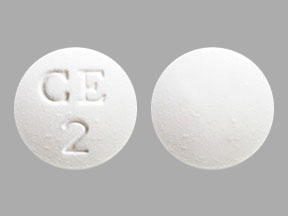
Calcium Acetate Coupons & Savings Card – Discount Prices from $58.12
Calcium acetate is prescribed to manage high phosphate levels in individuals with end-stage chronic kidney disease who are undergoing dialysis. This condition often arises because dialysis, while effective at removing some phosphate, may not be sufficient to maintain balanced phosphate levels. Elevated phosphate can lead to weakened bones, dangerous mineral accumulation in the body, and increased risks of heart disease and strokes. Calcium acetate works by binding to phosphate found in food, preventing its absorption into the body, and allowing it to be excreted. This process helps reduce phosphate levels, thereby supporting bone health and minimizing potential complications. It's important to take this medication with each meal. Possible side effects may include nausea, vomiting, and elevated calcium levels in the blood. Always consult with your healthcare provider before starting any new medication.
Our coupons are free to use. Before paying, show the pharmacist your Calcium Acetate savings card to get your free discount. Use our filters below to edit the prescription box to match your needs. The Calcium Acetate prices will update based on your prescription needs. Above our Calcium Acetate coupons, you can change your location to see pharmacy prices and costs in other areas. We're here to help you buy Calcium Acetate at the lowest price with our prescription discount card.
My prescription
Edit
667MG, Calcium Acetate (200 Tablets)
Select pharmacy

CVS
$62.72
COUPON PRICE
Walgreens
$58.12
COUPON PRICE
Albertsons
$91.03
COUPON PRICE
Walmart
$184.87
COUPON PRICECalcium Acetate savings card
Show this card to your pharmacist
Walgreens
$58.12
BIN
ID
PCN
GRP
015995
LHKRA945405
GDC
DR33
Powered by
Calcium acetate is prescribed to manage high phosphate levels in individuals with end-stage chronic kidney disease who are undergoing dialysis. This condition often arises because dialysis, while effective at removing some phosphate, may not be sufficient to maintain balanced phosphate levels. Elevated phosphate can lead to weakened bones, dangerous mineral accumulation in the body, and increased risks of heart disease and strokes. Calcium acetate works by binding to phosphate found in food, preventing its absorption into the body, and allowing it to be excreted. This process helps reduce phosphate levels, thereby supporting bone health and minimizing potential complications. It's important to take this medication with each meal. Possible side effects may include nausea, vomiting, and elevated calcium levels in the blood. Always consult with your healthcare provider before starting any new medication.
Our coupons are free to use. Before paying, show the pharmacist your Calcium Acetate savings card to get your free discount. Use our filters below to edit the prescription box to match your needs. The Calcium Acetate prices will update based on your prescription needs. Above our Calcium Acetate coupons, you can change your location to see pharmacy prices and costs in other areas. We're here to help you buy Calcium Acetate at the lowest price with our prescription discount card.
More prescriptions for kidney disease
More prescriptions for kidney disease
Invokana Save 2%coupons from $589.12
Farxiga Save 50%coupons from $324.26
Fosrenol Save 85%coupons from $144.46
Renagel Save 89%coupons from $58.15
Auryxia Save 54%coupons from $712.48
Cinacalcet Save 60%coupons from $39.99
Phoslyra Save 74%coupons from $158.10
Velphoro Save 18%coupons from $1554.50
Calcium Acetate (phos Binder) (Calcium Acetate) dosage forms
Use our Calcium Acetate (phos Binder) (Calcium Acetate) 667MG coupon with prices from $62.72 for 200 Tablets. You can also use our Calcium Acetate (phos Binder) (Calcium Acetate) 668 (169 Ca)MG coupon with prices from $17.09 for 200 Tablets. We have a Calcium Acetate (phos Binder) (Calcium Acetate) 668 (169 Ca)MG coupon with prices from $39.73 for 500 Tablets.
Dosage Quantity Price from Per unit 667MG 200 Tablets $62.72 $0.31 668 (169 Ca)MG 200 Tablets $17.09 $0.09 668 (169 Ca)MG 500 Tablets $39.73 $0.08
| Dosage | Quantity | Price from | Per unit |
|---|---|---|---|
| 667MG | 200 Tablets | $62.72 | $0.31 |
| 668 (169 Ca)MG | 200 Tablets | $17.09 | $0.09 |
| 668 (169 Ca)MG | 500 Tablets | $39.73 | $0.08 |
